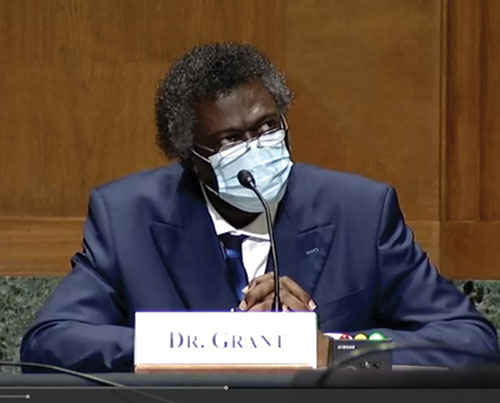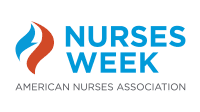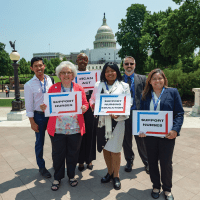In 2021, the American Nurses Association (ANA) is pursuing a full plate of nursing priorities in the 117th Congress. As in past years, core components of ANA’s federal legislative agenda are promoting the critical role nurses play in the health of patients and the nation and guaranteeing a strong future nursing workforce. Following the events of 2020, ANA is engaged with policymakers on occupational safety, health equity, public health, and nurses’ health and well-being. These priorities reflect ANA’s strategic goals, positions, emerging issues, and the current political environment.
Advancing nursing priorities
ANA remains committed to working as a respected nonpartisan voice for all nurses, to retain a seat at the policymaking table. A new political environment brings its own challenges. In 2021, ANA is getting to know key leaders in the new presidential administration, while also advancing nursing priorities with a new Congress. After an unpredictable 2020, ANA continues to be nimble and responsive in its efforts to promote nursing.
Nurses’ mental health. An emerging mental health crisis has been called the second pandemic, following a year of shutdowns, quarantines, social isolation, and uncertainty in a public health emergency. The COVID-19 pandemic has certainly taken a toll on nurses’ mental health, especially those early in their career. ANA’s survey at the 1-year mark found that four out of five nurses age 34 or younger report feeling exhausted, and two out of three say they’re anxious or unable to relax.
Fortunately, ANA has a close partnership with a strong community of mental health advocates. Together, we’re pursuing federal support for mental healthcare, including interventions that are meaningful to frontline providers. Congress must not leave nurses behind as society tackles mental health challenges associated with living through the pandemic.
Equity and disparities. Disparities in risk for COVID-19 and access to care were starkly and immediately evident in how the disease affected Black, Indigenous, and People of Color, compared to White populations. Early on, ANA was prominent among leaders calling for Congress to prioritize equitable access to care and preventive measures and continues this work in 2021. Most recently, ANA has called for concerted action to provide communities of color with ongoing information and facts about COVID-19 vaccines and immunization.
As nurses well know, progress toward health equity requires policy changes across the healthcare system. ANA joins healthcare partners in support of bills aimed at improving maternal and infant health outcomes, especially to address disproportionate risks of death and complications that Black mothers and their children face. We also support legislative initiatives to diversify the nursing workforce, a critical component of health equity infrastructure.

Personal protective equipment. For months, far too many nurses cared for patients while experiencing shortages of personal protective equipment (PPE) caused by supply failures and surging COVID-19 cases. In some areas of nursing, supply appears to have improved. However, ANA’s most recent survey found only 73% of nurses reporting they have adequate PPE.
The Biden Administration must vigorously enforce safety provisions that protect nurses exposed to COVID-19 and other infectious diseases and restore pre-pandemic standards for PPE without unnecessary delay. ANA believes such protections should be fortified with effective legislation that addresses flaws in the PPE supply chain and is actively engaging with Congress on options to redress the systemic failures seen during the pandemic. (See related photo above.)
Public health infrastructure and workforce. The nation’s public health infrastructure and workforce have been underfunded for decades. While more funding for physical infrastructure and personnel will be an improvement, our nation lacks the capacity to educate and train future nurses and other healthcare professionals to provide the care patients need.
ANA supports the Future Advancement of Academic Nursing (FAAN) Act (S.246/H.R.851), which would invest $1 billion to strengthen nursing school capacity. Provisions would:
- diversify faculty to educate the future nursing workforce
- help modernize curriculums
- establish nurse-led intradisciplinary and interprofessional educational partnerships
- support schools of nursing and healthcare partners to establish or expand clinical education.
Workplace violence. Preventing workplace violence continues to be a top priority for ANA. In April 2021, ANA members once again helped the House pass the Workplace Violence Prevention for Health Care and Social Service Workers Act (H.R. 1195). A previous version passed the House in 2019 but was not taken up in the Senate. This time, vote totals increased 254-166, and the bill passed with solid bipartisan support.
The bill directs the Department of Labor to promulgate a safety standard that requires employers in healthcare and social services settings to implement comprehensive plans to protect their employees from workplace violence. The department has had voluntary guidelines since 1996 but lacks enforcement mechanisms to ensure compliance. ANA will continue to push for passage of this legislation in the Senate. ANA thanks Rep. Joe Courtney (D-CT) for introducing and supporting the bill in the House.
Nursing workforce. Title VIII of the Public Health Service Act authorizes the Nursing Workforce Development Programs, which support RN and APRN education and training programs across the country. In 2020, Congress reauthorized Tile VIII as part of the Coronavirus Aid, Relief, and Economic Security (CARES) Act. For fiscal year 2022, ANA and partners are asking Congress to double the appropriation amount to $530 million. The coronavirus pandemic showed the importance of investing in nursing and APRN workforces, which are so vital to public health and the nation’s capacity to manage future health emergencies.
Opioid crisis. The SUPPORT for Patients and Communities Act of 2018 granted nurse practitioners permanent prescriptive authority for buprenorphine to treat opioid use disorders and gave the other APRN professions authority for 5 years. In April 2021, the Biden Administration put out new guidance that would allow all providers to obtain authority without burdensome educational requirements for treating up to 30 patients in their care. They would need to take the educational courses to go above the 30 patient limit. While this is progress, it will not solve the crisis.
ANA has endorsed the Mainstreaming Addiction Treatment Act (H.R. 1384/S. 445), which will remove the requirement for additional continuing education to be able to provide medication-assisted treatment to opioid use disorder patients. It also will eliminate the sunsetting of other APRNs’ authority to prescribe buprenorphine.
Nurse staffing. Every nurse knows the stress and risks from fatigue while caring for patients. Regulations to limit work hours have been in place since the 1930s for high-risk occupations. Unfortunately, healthcare has been slower to adopt work hour regulations, including policies regarding mandatory overtime for nurses.
Mandatory overtime has long been used as a short-term solution to staffing challenges and in many cases it is standard practice. ANA worked with Senator Jeff Merkley (D-OR) to introduce the Nurse Overtime and Patient Safety Act in 2019 and aims to have it reintroduced this year. If passed into law, some provisions will:
- limit mandatory overtime for nurses
- include whistleblower protections for nurses who file complaints against their employer
- impose civil penalties for violations
- preserve state laws that provide greater protections with respect to mandatory overtime for nurses.
Giving nurses a voice
Through legislative efforts in 2021, ANA will continue to advocate on behalf of nurses and patients to elevate the role of nursing in America’s healthcare system.
— Samuel Hewitt is a senior associate director and Lisa Stand is a senior policy advisor in the Policy & Government
Affairs department at ANA.
ANA resources
- Get involved, take action, and learn more about critical nursing issues at RNAction.org.
- Stay up to date on the latest healthcare policy and advocacy at ANACapitolBeat.org.


















